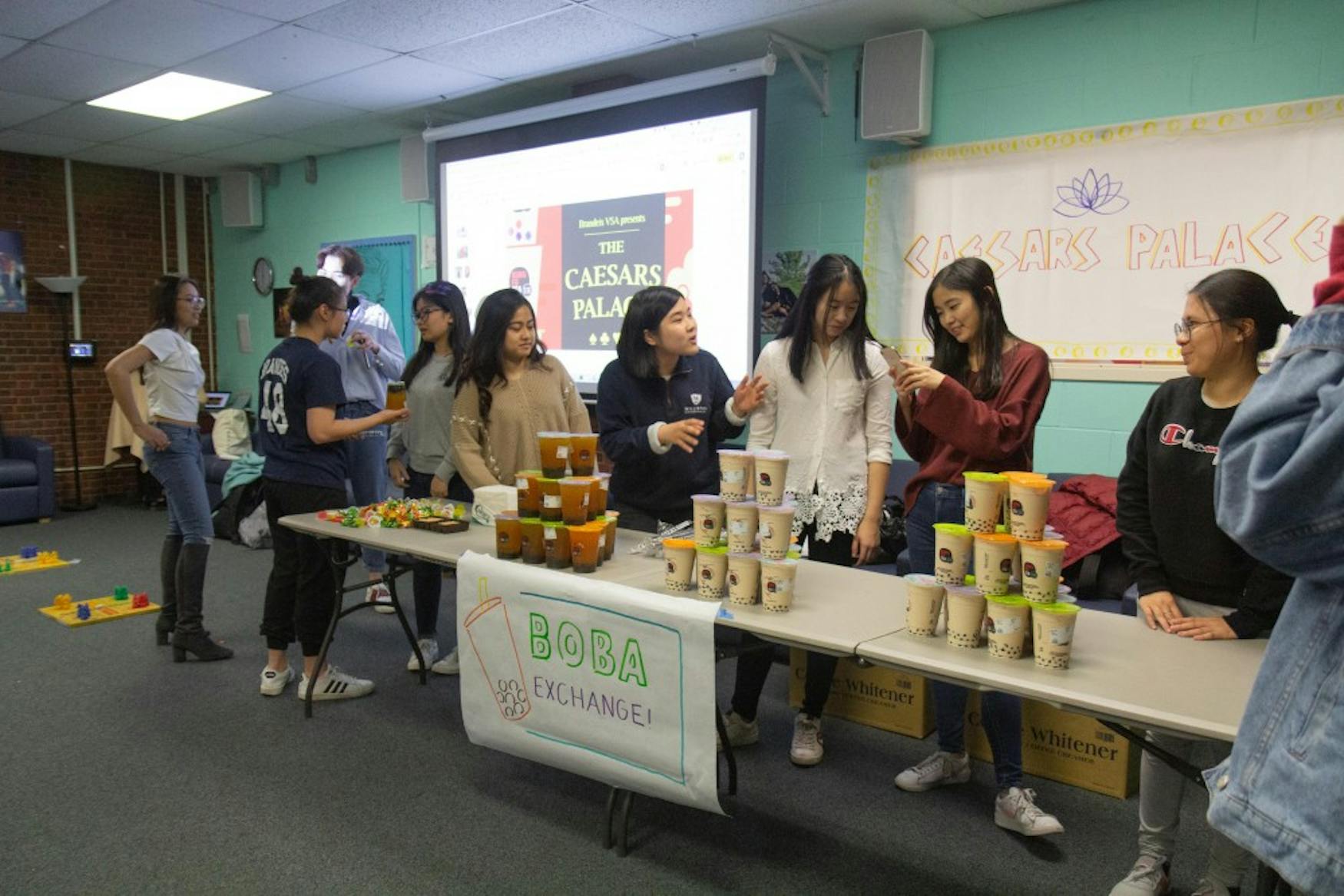Try your luck and win some boba at VSA’s ‘Caesars Palace’
On Oct. 16, the Vietnamese Student Association hosted “Caesars Palace,” an event based on traditional casino games popular in Vietnam. The idea behind the event was inspired by its Vietnamese cultural roots. First, VSA presented a slideshow which explained the history behind gambling in Vietnam: playing board and card games helps to strengthen bonds between family and friends and is also believed to bring good luck. Although gambling is technically illegal in Vietnam, people still enjoy playing games and placing bets on events within the country and on a global scale. Because of this, casino businesses are a new development in Vietnam to celebrate this social activity which brings people together.
To attract people from within the Brandeis community, VSA advertised that they were providing free boba from Kung Fu Tea and Vietnamese snacks. However, when students arrived at the Intercultural Center, they were told that in order to receive these free food and drinks, they had to participate in two of the six games being played. In my opinion, this was a great way to include people in the games and demonstrate this aspect of their culture. Groups of six were dispersed throughout the ICC lounge, as VSA executive board members explained the games’ instructions.
Laughter and cheerful conversations filled the room as the ICC lounge was transformed into a real-life casino. The six games included were: Bầu Cua Cá Cọp, Cờ Cá Ngựa, Tien Len, Bai Cao, Xi Dach and Phom. Bầu Cua Cá Cọp, “gourd-crab-shrimp-fish,” is a gambling game that uses three dice, where the players are asked to place bets on the board corresponding to the side that the three dice will land on. Cờ Cá Ngựa, “the horse racing game,” is made up of four people who compete to get all four of their horses into the numbered pens in order to occupy as much space as they can. Tien Len, “advance,” is considered to be the national card game of Vietnam, in which the objective of the game is to be the first to finish playing your hand of cards by playing various combinations. Bai Cao is another card game which simply evaluates the hand of three cards given to each player, with the player holding the higher value of certain digits winning. Xi Dach is the Vietnamese version of Blackjack, where the objective of the game is to get the sum of all the cards as close to 21 without going over this limit. Finally, Phom is a game similar to “Rummy,” where the objective is to exchange cards in a hand to form combinations of cards called “phoms” and to reduce the number of points left in the cards that are not in any “phoms.”
Throughout the night, the students played with fierceness and enthusiasm. Shouting and chanting could be heard across the room. One of these students, Zaire Haynes ’21, stated, “I enjoyed the fact that they made us play games first. It forced me to learn about the Vietnamese culture, and I was actually able to really appreciate VSA and their unique traditions.” Other students echoed her response and included that this experience allowed them to interact with new people and make new friends. After watching the students bond with one another, I can confidently say that VSA was successful in their attempt to showcase their country’s culture and history. Both students and faculty members of the ICC were seen to be interacting with one another through this experience.
At the end of the night, VSA had officially run out of bubble milk tea and had few snacks left. The e-board members also advertised their next upcoming event: Saigon After Midnight on Friday, Oct. 25, from 7 to 9 p.m. in Ridgewood Commons, which I would highly recommend! After this event, I know that myself and many other students are eagerly looking forward to what VSA has planned for the remainder of the semester.



Please note All comments are eligible for publication in The Justice.